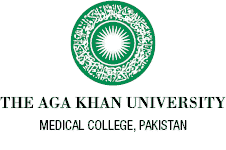AKU specialists challenged by rare triple genetic, congenital, heart disorder in 6-year-old from Karachi
The AKU Department of Paediatrics & Child Health has successfully treated a young patient with an extremely rare trio of conditions: William's Syndrome, supravalvular aortic stenosis and ALCAPA.
“It was an unusual combination—at least I haven't come across any literature on this so far," said Dr. Saleem Akhtar, the Associate Professor of Paediatric Cardiology who is part of the multi-disciplinary team treating six-year-old Saad.
Saad was an 8-month premature baby who the doctors at the hospital where he was born had initially written off, according to his mother. “A premature baby needs a lot of time and care and we didn't get that care," she said, referring to the family's initial challenges in grappling with Saad's condition in Karachi. “He had no eyebrows, no eyelashes, no hair. He was very raw kid. As time passed, I used to tell everyone at home that there is a problem. But they didn't believe me. He crawled at about a year and a half. The first time he laughed was at seven months." Something was clearly not right to them.
They spent several years visiting doctors to try to figure out what Saad needed.
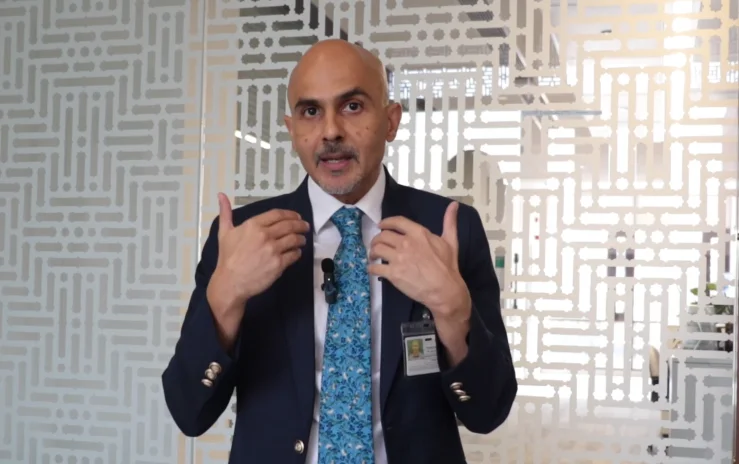 Dr. Salman Kirmani. Photo: Paediatrics & Child Health
Dr. Salman Kirmani. Photo: Paediatrics & Child Health
About eight months ago, his parents eventually brought him to AKU where a multidisciplinary team took on his case and he was diagnosed with the rare William's Syndrome by geneticist Associate Professor Dr. Salman Kirmani. “William's Syndrome is a chromosomal micro deletion disorder; Chromosome No 7 has a micro deletion on it, a tiny piece of chromosome seven is missing," he explained. “This happens de novo or by chance any time a conception is happening. It is irreversible, but you can enhance the person's quality of life."
For geneticists, the characteristic features of William's Syndrome can be prominent ears, slight swelling around the eyes, a relatively large mouth and hyper-elasticity in the skin and joints. “One of the unique features about this diagnosis is that the children have a very unique personality—sometimes called a cocktail party personality," according to Dr. Kirmani. “These children are very, very friendly, very social. In fact, they are so friendly that it can actually be a hindrance to them because they sometimes don't recognize boundaries in school and in other settings."
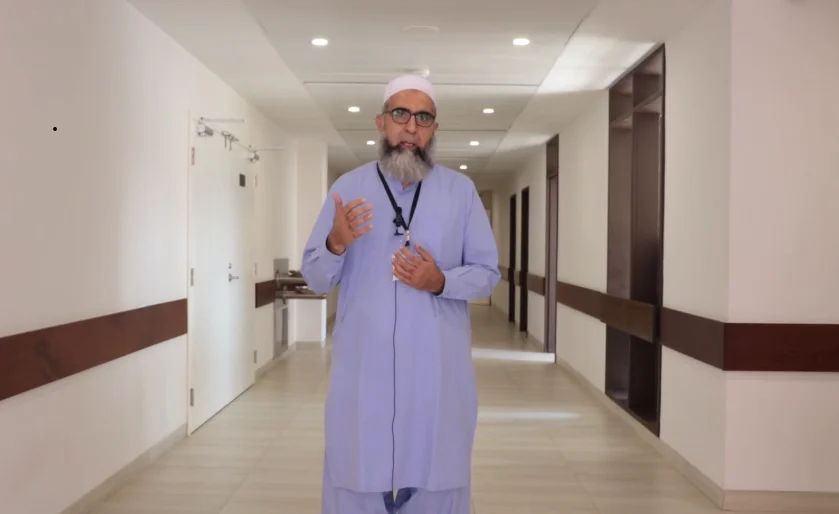 Dr. Saleem Akhtar. Photo: Paediatrics & Child Health
Dr. Saleem Akhtar. Photo: Paediatrics & Child Health
More crucially in Saad's case, William's Syndrome is associated with specific features such as a narrowing or stenosis of the blood vessels like the pulmonary artery. “When we did an Echo[cardiogram], to our surprise we found that this patient has an extremely unusual combination," said Dr. Saleem Akhtar, his paediatric cardiologist, “He has supravalvular aortic stenosis and an abnormal coronary artery arising from the pulmonary artery."
In medical terms, this is the very long Anomalous Left Coronary Artery from the Pulmonary Artery that is shortened to the acronym ALCAPA. Normally, the left coronary artery should be coming off from the aorta—but in Saad's case it was coming off from the pulmonary artery.
Additionally, he had supravalvular aortic stenosis or narrowing, not at the valve, but above it. Supravalvular aortic stenosis is universally reported with William's Syndrome but the left coronary artery abnormality is not. This is what made Saad unique.
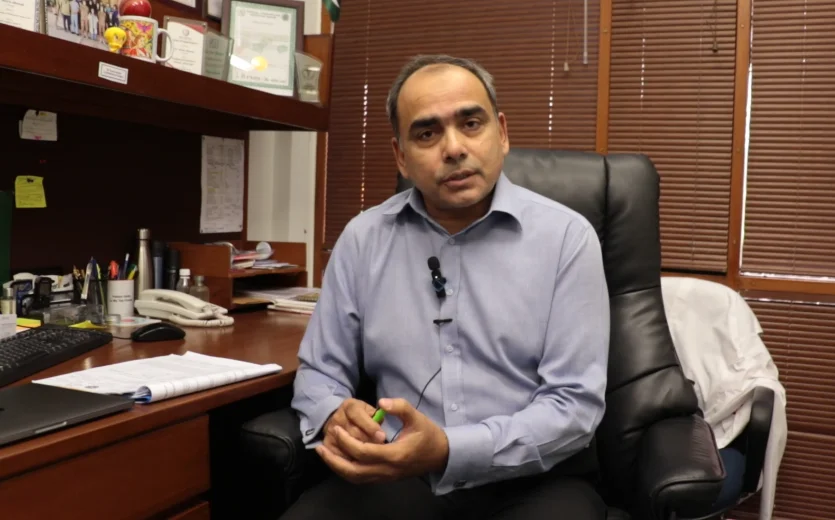 Dr. Waris Ahmad. Photo: Paediatrics & Child Health
Dr. Waris Ahmad. Photo: Paediatrics & Child Health
“The artery on the opposite side of this child's heart was attached to the artery on the lungs, which means that all the old and used blood was going to the heart in that artery, which causes damage to the heart," explained Saad's cardio-thoracic surgeon, Assistant Professor Dr. Waris Ahmad, who operated on him in October.
A multidisciplinary team (comprising Paediatric Intensivists, Surgeon, Cardiologists, and Critical Care nurses) used the help of Artificial Intelligence for advanced monitoring and risk analysis after the surgery. “We provided dedicated personalized care, which we do for children who are syndromic," said his Critical Care specialist Associate Professor Dr. Qalab Abbas. The condition of these children like Saad can change minute to minute during the postoperative period (which is the most vulnerable time of their treatment). This requires the vigilance of a dedicated critical care team for the post-surgical period. “His post-operative care was smooth and he was out of the ICU as expected and went home safely," he added.
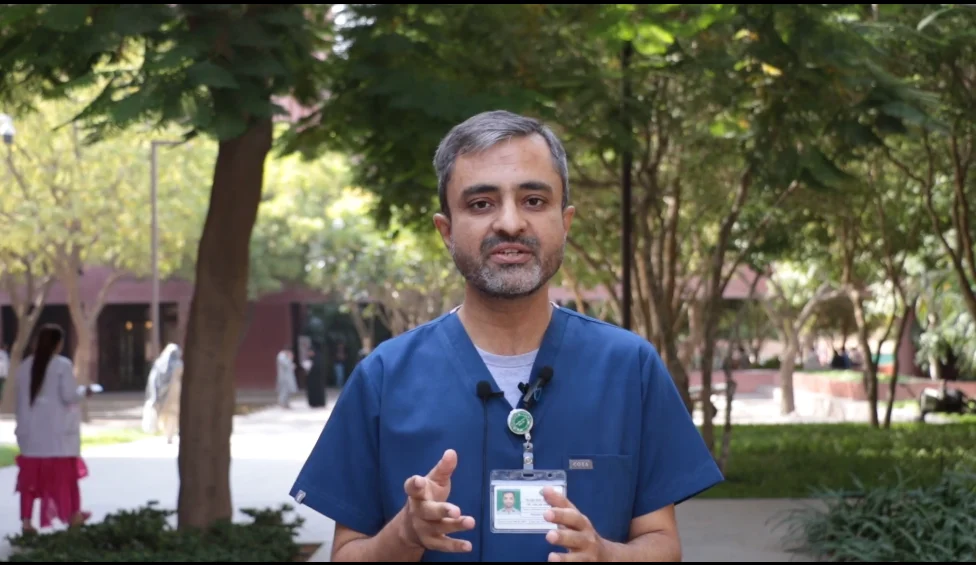 Dr. Qalab Abbas. Photo: Paediatrics & Child Health
Dr. Qalab Abbas. Photo: Paediatrics & Child Health
Saad's parents were hopeful and happy when they last came for a check-up. One marked difference they said is that he sleeps himself now, which is a welcome change from staying up till five or six o' clock in the morning. His follow-ups and Echocardiograms will continue but he is entering the next phase of treatment, which will focus on development so he can start schooling at home or with other children.
His parents wanted to share two pieces of advice for other parents. Get your child tested during pregnancy and never hesitate to consult a specialist if you feel your child may have a condition.


